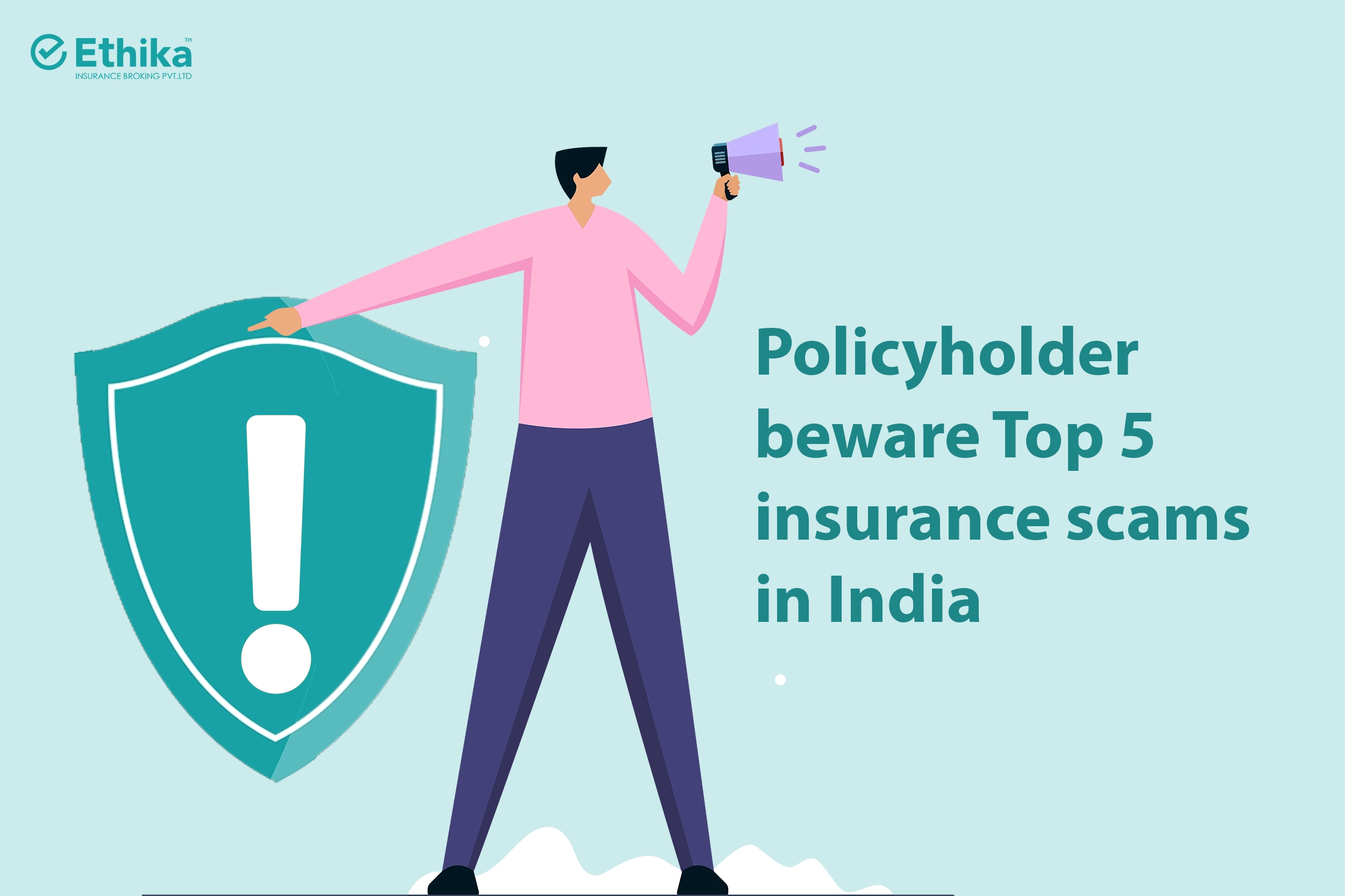
Insurance is a subject matter of solicitation, meaning that insurance should be asked or requested by a customer and not be forced upon by selling to an individual. In short, the request for insurance should come from an individual, and only then should the sale happen. However, we might have encountered many instances where the insurance companies and some intermediaries would force insurance on customers.
In this process, the net loser would be the customer, as the customer would need to be made aware of the intricacies of the insurance policy. For this reason, any insurance policy comes with a caveat venditor or “let the seller beware” instead of regular caveat emptor or “let the buyer beware.”
Despite such strict monitoring and stringent conditions, there are many instances of policyholder scams during the insurance purchase process.
What’s on this page?
Top 5 Insurance Scams That Every Policyholder and Common Person Should be Aware
Fake Policies
The easiest way to scam a policyholder is to issue a fake insurance policy. In the past, a fake cover note was given to motor insurance customers, and there was no way for customers to verify the authenticity of the document as they were heavily dependent on the insurance agent or intermediary for insurance purposes. Moreover, the customers were not educated in insurance and were unable to distinguish between an original policy and a fake policy.
Due to digitalization, the issuance of insurance policies has moved online, which has paved the way for scammers to issue fake insurance policies by editing the information on an original policy. This way, customers are unable to verify the authenticity of the policy and are at the mercy of the insurance intermediary to believe in the originality of the policy.
One way to overcome this issue is to mail the insurance company with the policy number and confirm the authenticity of the policy. For motor insurance, the policy details would be updated in Parivahan, a place to check any vehicle details registered in India.
Manipulation of Premiums
The other scam that scammers could commit is manipulating insurance premiums. A customer might be charged extra, and the scammers would pocket the extra amount above the premium. For example, if the policy premium is Rs. 1000, intermediaries might take Rs. 1200, stating reasons such as processing charges, taxes, etc. It is important to remember that whatever premium amount is collected from you, the same amount should be reflected in the insurance policy copy.
You should immediately notify your insurance company if the amount you paid is mismatched in the policy copy.
Identity Theft
The other uncommon but strong possible scam that may happen to any of us is identity theft. There are instances where a person’s identity is stolen, and an insurance policy is created in their name. This usually happens to people who have severe conditions such as Cancer or other life-threatening conditions. Once the person succumbs to the illness, a claim would be made in their name.
One instance of this has happened in Haryana, where a gang has identified people with critical illnesses and took a personal accident policy in their name. Then, after the death of the policyholder, they would throw the body under a vehicle to make the claim look like a personal accident claim.
To avoid such claims, one can be vigilant by not providing their identity to unknown people.
Wrong Plans for the Right Customer- Over-promising and Under-delivering- Misrepresentation of Coverage
The most common unseen scam is the sale of the wrong plan for the right customer. This may happen for various reasons, such as the insurance intermediary needing help understanding the customer’s requirements or an agent purposefully selling the wrong policy to get a high commission.
The insurance intermediary might overpromise coverage to the customer, but later, the policy needs to be revised, leading to dissatisfaction. For example, agents might promise 10% returns, but the policy might only be able to give 5% returns.
This menace is more common in the life insurance industry, where agents sell unit-linked insurance plans (ULIP) promising abnormal returns. Policyholders may avoid this scam by clearly reading the policy document and verifying the claims made directly with the insurance company through mail.
Unverified Online Sales
Everything is sold online, and it has become increasingly difficult for people to identify the correct one. Many websites have popped up selling insurance plans online, and customers should be aware of these websites. To avoid falling prey to these scams, one should always check for the IRDA license number on these websites before purchasing a policy.
FAQs:
<strong>How do you identify a fake policy?</strong>
A fake policy can be identified by looking at the signature at the end of the policy. The signature would be digital, and any changes made to the original policy would also change the digital signature.
<strong>What is the caveat emptor in insurance?</strong>
Caveat emptor translates to letting the buyer beware, which means that the individual should buy anything at their own risk. This is not applicable in the insurance industry.
<strong>What is a caveat venditor?</strong>
A caveat venditor means letting the seller beware, which means the seller should be responsible for what they are selling. It is applicable in the insurance industry as insurance is a subject matter of solicitation.
<strong>How do you verify a fake insurance policy?</strong>
A fake insurance policy can be verified by emailing the insurance company with the policy details so that they can confirm its authenticity.
<strong>What should I do if I receive a fake insurance policy?</strong>
If you receive a fake insurance policy, you should contact the insurance company and then complain to the police station. This way, the insurance company would be alerted and take appropriate action to prevent others from falling prey to such scams.